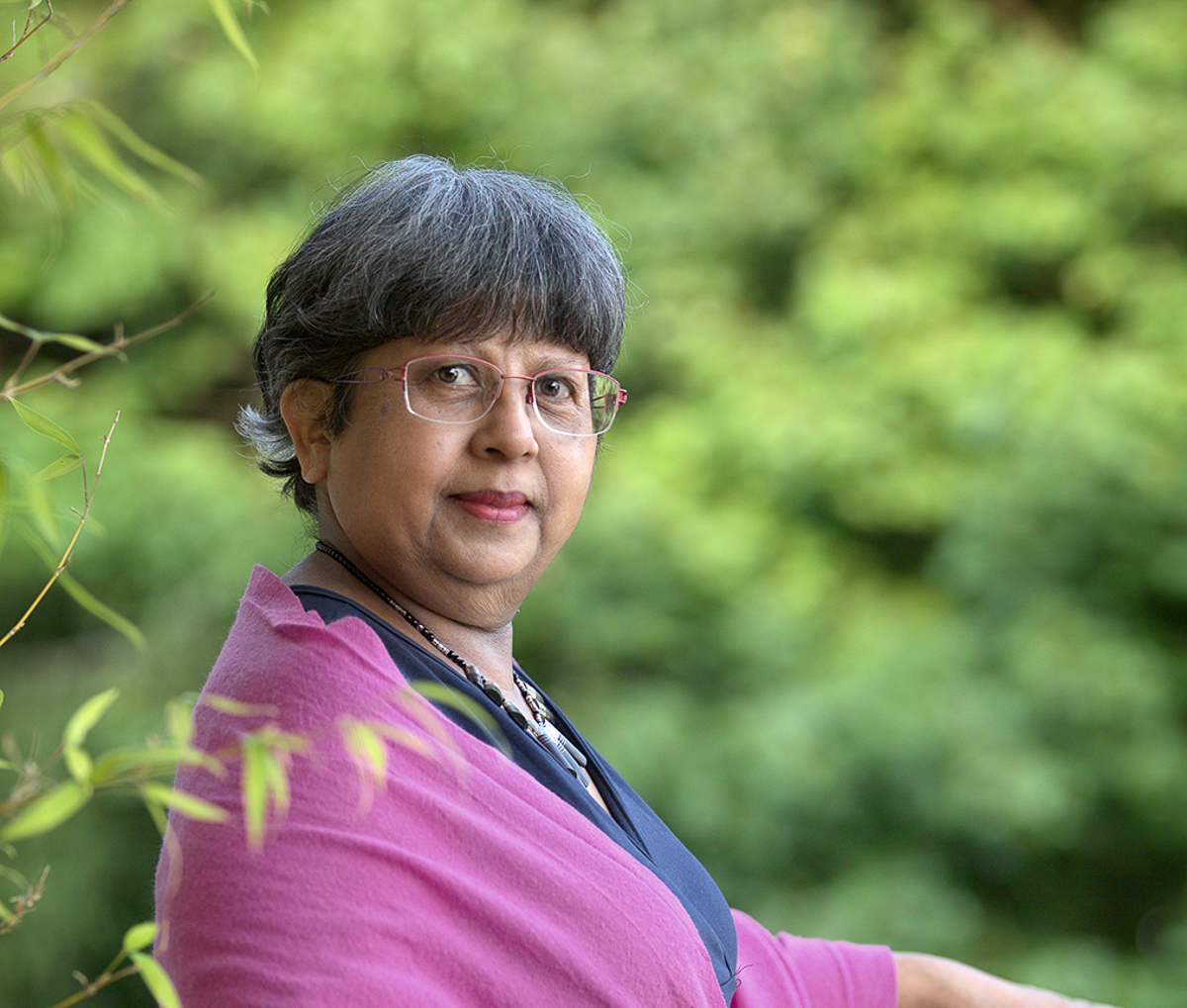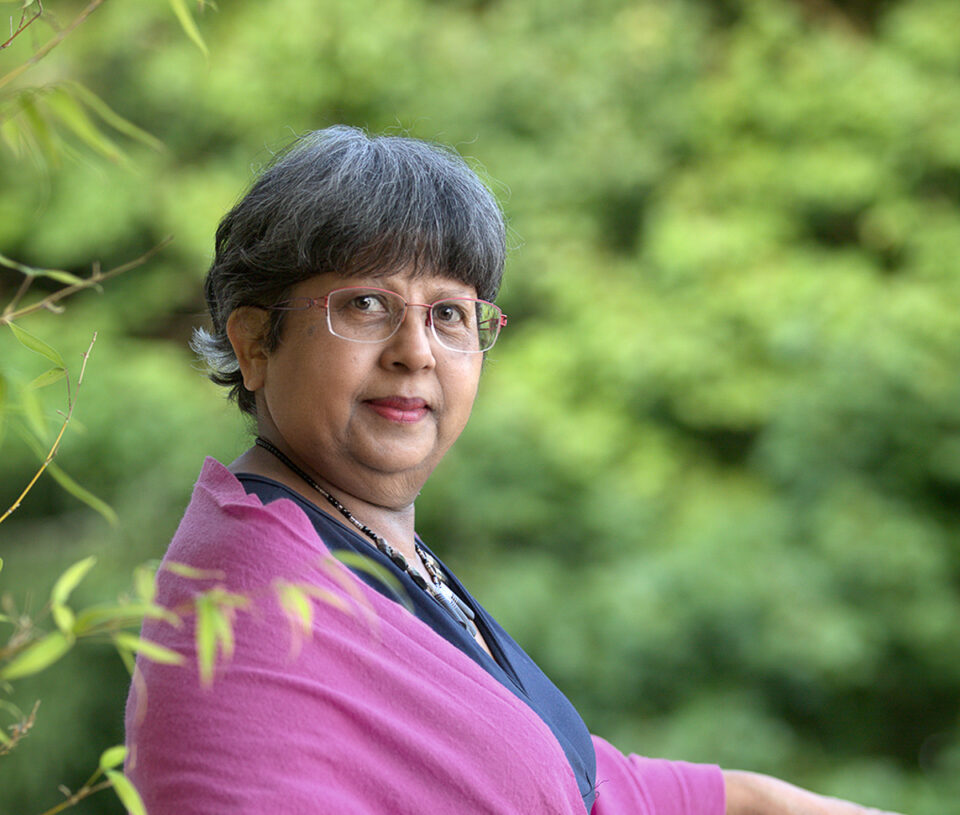Shirin Aumeeruddy-Cziffra was one of the first women to live at ISH. We talked about all things ISH, feminism, her career, and work in Law and Politics.
I arrived in London in the Autumn of 1969, that’s ages ago! I was enrolled at the Middle Temple because I wanted to read Law to become a Barrister. I was sharing a flat with friends, and then I heard about ISH from a cousin who was also studying with me. He said why don’t we both go to International Students House; it’s going to be the first year that they’re going to have young ladies. So, we both registered – he didn’t get anything because of course there were loads of guys there already, but I was immediately accepted.
I’d just been in London for a year, and I wanted to make the most of it, so I decided to stay at ISH during the summer. They asked me if I wanted to work, so I did one month as an Accommodation Officer, and when we started the term, I worked as a Duty Officer once a week. It was great fun and I enjoyed that very much. I also served coffee in the coffee bar. I very much enjoyed roaming around – which meant not just going for a walk, it meant going to people who were a bit alone, a bit lost, and talking to them and making friends.
“I enjoy talking to people. When I started practising Law later, I realised that when people came to see me, especially people with family problems, they wanted to tell me their story”
And there I was, as a Lawyer, listening to their stories and although I’m not a psychologist, I like talking to people. So, I did this often, going to talk to people who seemed to be alone, didn’t have friends, and that I enjoyed very much.
Thinking of those first years that women were allowed to live at ISH, what was it like?
For me it was exciting. The boys were on the first floor, we were on the second and third floor, and then they were on the fourth and fifth, so we were sandwiched. Living at ISH we were quite free, but at the same time, we were quite responsible, you know? We never had any problem with anybody. There were all sorts of couples, there was no racism, we had friends from all sorts of countries, and it was great.

What has your career path been? How did you get to where you are now?
After I graduated, I moved to Mauritius in 1974 and got married. After that, I was called to the Bar, and I started working as a private Lawyer. At the same time, I was appearing for workers, as I was one of the Barristers working for the trade unions defending workers.
Then I was a candidate for elections, and I was elected immediately, and then as a member candidate for Municipal elections in my same town. I was also elected there as Municipal Counsellor. At one point I became Mayor of the town in 1987. So, I was deep down in politics doing both local government and central government.
Then I opted to go to Paris as Ambassador for three years. It was during the government of François Mitterand. Who, for me, he was one of the best Presidents in France, so I had a great time when I was Ambassador. After I came back, I did so many things, one of the most important being an Ombudsperson for Children. This is an independent person who’s appointed to defend the rights of children, and make sure that everybody in the country, the government, NGOs, local government, etc. Respects the rights of children, according to the United Nations Convention on the rights of the child.
I enjoyed doing that for eight years until my current job was offered to me, which is what I’ve been doing since 2012. This one is a tribunal. I’m like a Judge, but it’s Administrative Law, so it’s civil servants who, if they haven’t been appointed and they think they deserve to be appointed, can come to appeal before the tribunal which I’m chairing now. It’s still in the same realm of Justice and Law, but I’m sitting now acting as a Judge rather than a lawyer.
What inspired you to work in this field?
The very fact of learning about the law, I’m not a corporate lawyer, I’m not doing Law in order to defend companies and make money. I was doing it because I wanted to defend the downtrodden, the poor people, and the workers. Human Rights were my main interest – I was fighting for Human Rights all the time and I still am. A year ago, the European Union based in Mauritius asked me to become a Goodwill Ambassador for Human Rights, so I agreed, and that is still ongoing. There’s a campaign called “Rise and Shine”, and we are speaking about women’s rights, children’s rights, disability rights, etc. So, while my thing is women and children, I still fight for Human Rights.
You mentioned you’re a feminist. Being a female leader, have you encountered any barriers to your success or your growth?
The biggest barrier was when they wanted me to leave Mauritius with my husband. That was the worst that could have happened. They changed Immigration and Deportation Laws, that’s why I had to go to the Human Rights Committee – there were twenty women who went, with the case ‘Shirin Aumeeruddy-Cziffra and Nineteen Other Women’.
They made it only for male husbands, not for females who married Mauritian citizens. This was discrimination embedded in Law, and it was so flagrant because if I had been a man, the problem wouldn’t arise. That’s why I won the case – because it was discriminatory on the basis of sex.
Mauritius had signed all the Human Rights conventions, so one of those conventions is called ‘The Covenant on Civil and Political Rights’. And in that convention, it says you cannot discriminate on the grounds of sex. It also says that you must protect the family as a unit, this was also in my favour. Because if they had chucked my husband out, what would happen to my family?
It was a very interesting case and it’s cited in all sorts of other cases now. Students of Human Rights in all sorts of universities are learning about this because the case is one of the most important cases in the realm of Human Rights. In some way, there’s always something good that comes out of something bad.
There are few women in politics, few fairly well-known but globally you don’t have many women in politics. In Mauritius, there are still very few women in parliament, and we have only 3 Ministers out of 14 who are women. I’m a fighter, but my husband was there all the time.
In order for a woman to be in politics, if she’s married, she must have a husband who understands and supports her. Because if my husband didn’t support me I would never have been able to work in politics for so many years. When he lost his status as a resident, he said ‘you are right to fight, and I’m going to stay here and see what they do’.
Do you have any career highlights or memories that you can think of that really resonate with you?
I’ve met some very important people – I’ve worked with Heads of State, I also met Mrs Gandhi and I really appreciated her as a person. I discussed it with her, and she told me she admired young people like me because she was much older when she started fighting for women’s rights.
She told me ‘When I was born, I was the only child, so I didn’t have this problem of having a brother, my parents treated me well, and I didn’t feel like I was being discriminated against. But now that I’ve grown up, I realise that in the world there’s so much discrimination that I can’t stay silent. I’m now catching up with you because I’m also speaking out for other women.’ That was a very special connection.
You can meet some very important people, but not everybody strikes you in the same way. What I liked about President Mitterrand was that when he was going to be President for the first time, he was a candidate in elections, he said he was going to abolish the death penalty in France. Of course, that’s a human rights issue, and he knew that it was not very popular, because many people, even in democratic countries, think that the death penalty is a very good thing. He persisted knowing that it was not a popular measure – normally politicians do things that are popular, but he maintained his position and was still elected. As soon as he was elected, he abolished the death penalty. For me, that was so important. In Mauritius, we struggled to get the death penalty off, but we managed. I also struggled so that young girls couldn’t get married before eighteen, that was one of my biggest struggles because at one-point young girls could get married at fifteen and sixteen. So, these are the kind of issues that I’ve been involved in and are very dear to my heart.
What does success mean to you?
I don’t think success is important for me personally. If I want to do something, I think about whether it’s a good thing. In my public life, what was important was that it would be for the benefit of the people in general, not for the benefit of a few only.
“for me success is not for myself, it must be the success of my country. I don’t think I can rest quietly and be happy with small personal successes. I think there’s always a struggle to improve social rights, economic rights, and the rights of those who are vulnerable”
I think that for me, success should be based on that. I refuse to accept that a few people will be able to reap the benefits of development because I think that we should do something for the people in general. For example, I’m currently writing a book on women’s rights in Mauritius and how it evolved. We just had our Minister of Finance vote on the new budget, and I’m right now in the middle of looking at all the measures for poorer people – how do you get people out of absolute poverty? To me, social issues are also human rights issues. We need to have social housing, we need to have good healthcare, and children must eat properly, they can’t go to school and do well if they’re going without eating in the morning.
Have you also read these articles?

